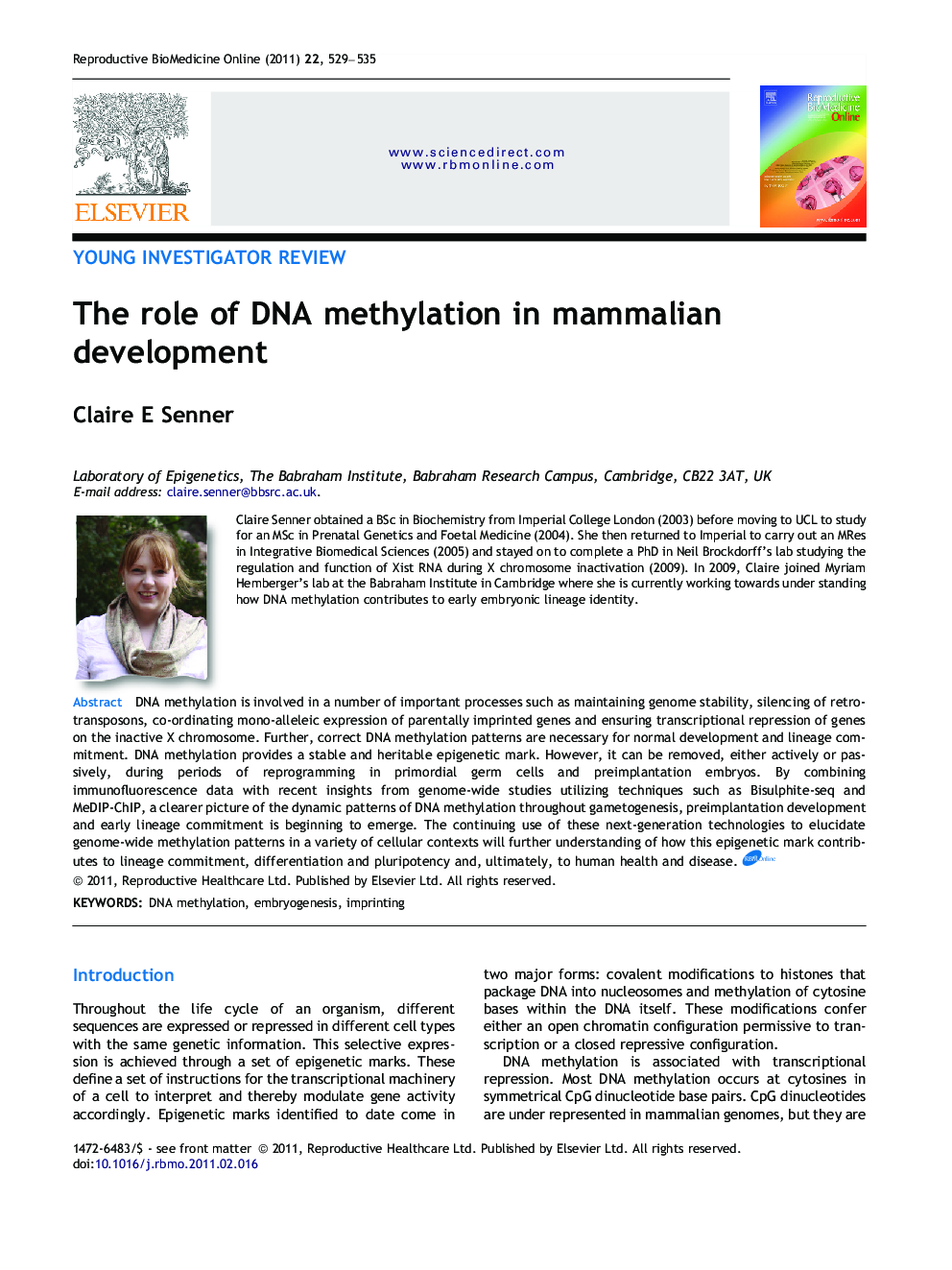| Article ID | Journal | Published Year | Pages | File Type |
|---|---|---|---|---|
| 3971290 | Reproductive BioMedicine Online | 2011 | 7 Pages |
DNA methylation is involved in a number of important processes such as maintaining genome stability, silencing of retrotransposons, co-ordinating mono-alleleic expression of parentally imprinted genes and ensuring transcriptional repression of genes on the inactive X chromosome. Further, correct DNA methylation patterns are necessary for normal development and lineage commitment. DNA methylation provides a stable and heritable epigenetic mark. However, it can be removed, either actively or passively, during periods of reprogramming in primordial germ cells and preimplantation embryos. By combining immunofluorescence data with recent insights from genome-wide studies utilizing techniques such as Bisulphite-seq and MeDIP-ChIP, a clearer picture of the dynamic patterns of DNA methylation throughout gametogenesis, preimplantation development and early lineage commitment is beginning to emerge. The continuing use of these next-generation technologies to elucidate genome-wide methylation patterns in a variety of cellular contexts will further understanding of how this epigenetic mark contributes to lineage commitment, differentiation and pluripotency and, ultimately, to human health and disease.
